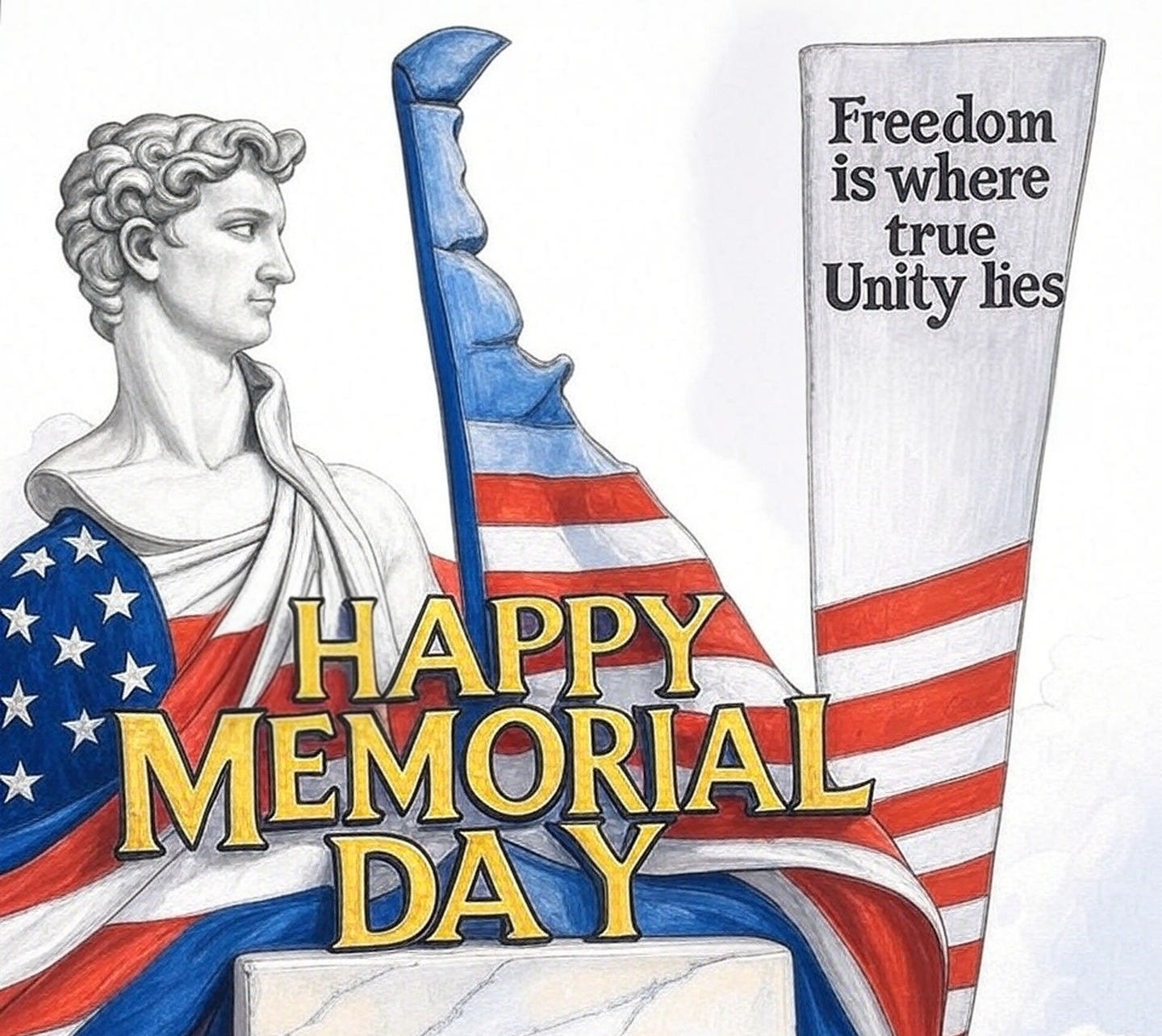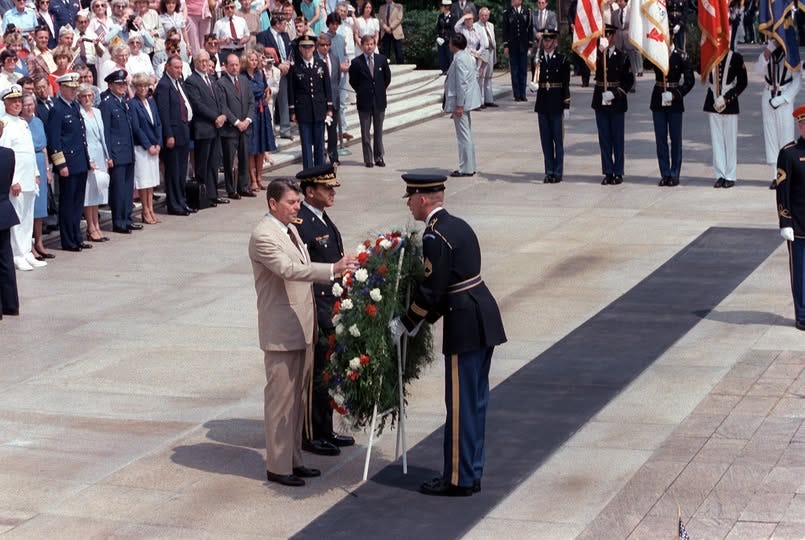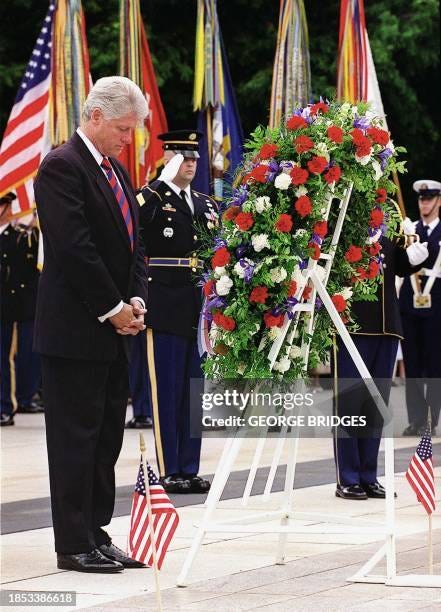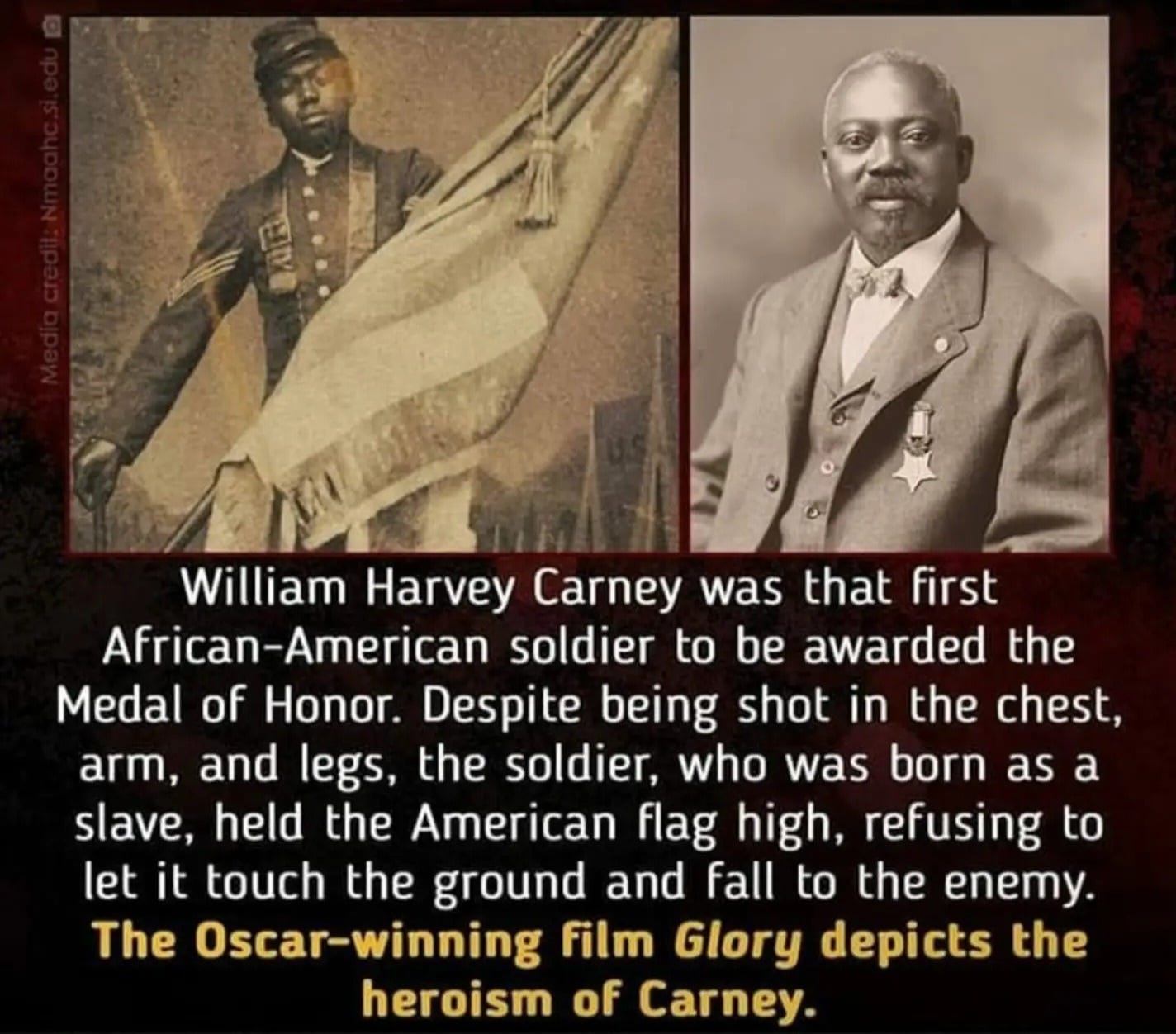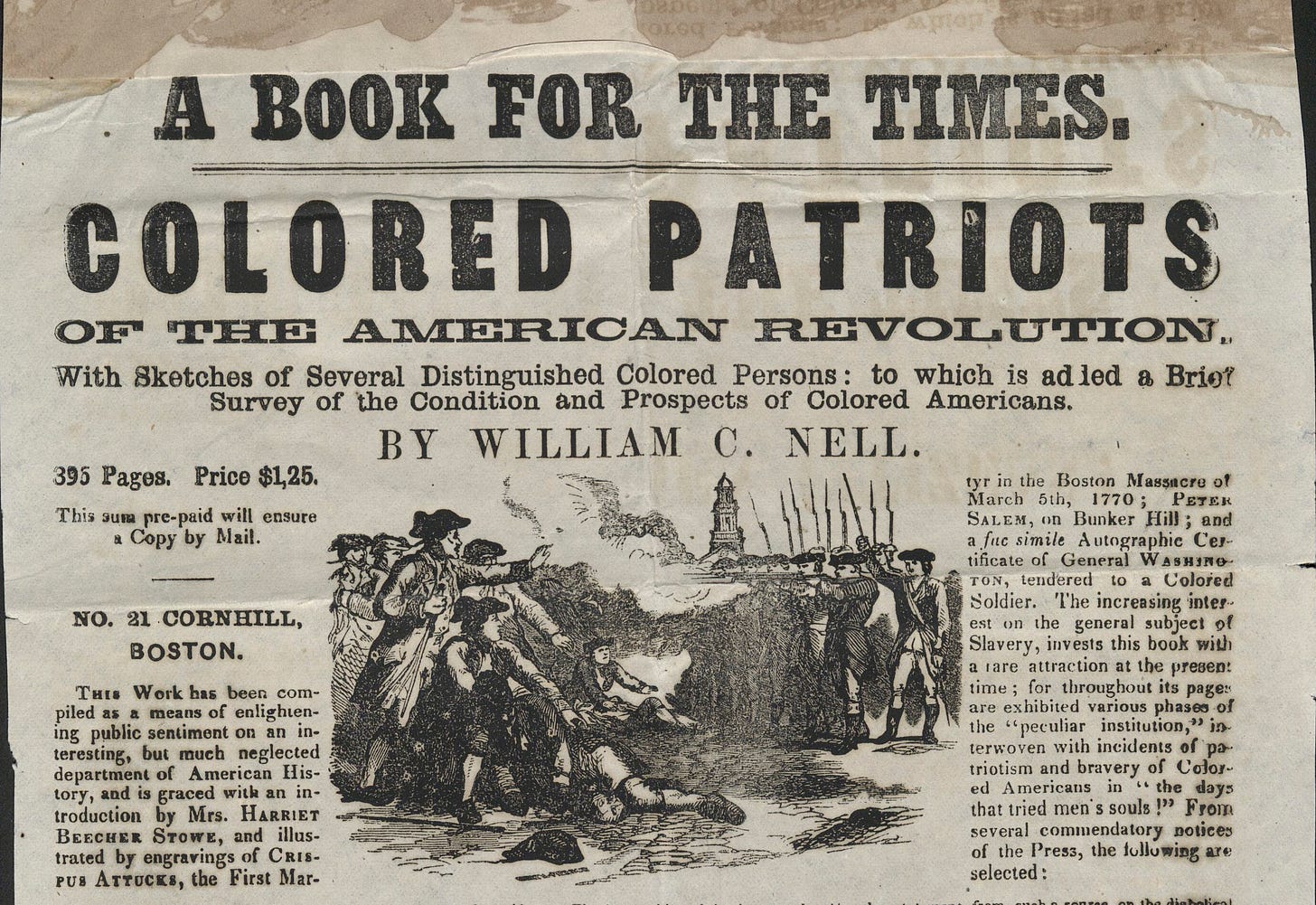From Decoration Day to Memorial Day: Honoring the Fallen
A Day to Honor and Remember Those Who Sacrificed
NOTE: The opening & presidential quotes were provided by Grok Artificial Intelligence. The list of fallen heroes was taken from my extensive list of unsung heroes I’ve been curating to create videos for my “Songs of the Unsung” YouTube channel, which can also be found in the Schooling Delaware toolbar.
Origin of Memorial Day:
Memorial Day, originally called Decoration Day, began in the United States after the Civil War to honor the soldiers who died in that conflict. The war, fought from 1861 to 1865, left over 600,000 dead, and communities sought ways to commemorate the fallen.
The practice of decorating soldiers’ graves with flowers emerged in various places, but the formal establishment is often tied to May 30, 1868, when General John A. Logan, leader of the Grand Army of the Republic (a Union veterans’ group), called for a nationwide day of remembrance.1 He chose May 30 because it wasn’t tied to a specific battle, and flowers would be in bloom across the country.
Resolved that the Congress of the United States, in recognition of the patriotic tradition set in motion one hundred years ago in the Village of Waterloo, NY, does hereby officially recognize Waterloo, New York as the birthplace of Memorial Day…
– U.S. House of Representatives Concurrent Resolution 587
Waterloo, New York, is recognized by Congress as the official birthplace of Memorial Day due to its 1866 event, where businesses closed, and residents decorated graves of fallen soldiers. Over time, the holiday expanded to honor all American military personnel who died in any war. After World War I, it became a broader tribute, and in 1971, the Uniform Monday Holiday Act moved it to the last Monday in May, creating a three-day weekend.
Notable Presidential Words on Memorial Day:
1. Abraham Lincoln (1863, not explicitly Memorial Day but foundational):
Though Lincoln’s Gettysburg Address wasn’t delivered on Memorial Day, its words shaped the holiday’s ethos:
“We here highly resolve that these dead shall not have died in vain—that this nation, under God, shall have a new birth of freedom—and that government of the people, by the people, for the people, shall not perish from the earth.”
This set a tone for honoring sacrifice through national unity and purpose.
2. Ronald Reagan (1982, Arlington National Cemetery):
Reagan emphasized the personal stories behind the fallen:
“We come to honor those who gave their lives so that we might live in freedom… Their lives remind us that freedom is not bought cheaply. It has a cost; it imposes a burden.”
He highlighted the ongoing duty to preserve the freedoms they died for.
3. Bill Clinton (2000, Arlington National Cemetery):
Clinton spoke of unity and shared sacrifice:
“They did not die so we could bicker and tear ourselves apart. They died so we could live together, honoring the best of our nation’s heritage and building a better future.”
His words called for national cohesion in memory of the fallen.
4. Barack Obama (2011, Arlington National Cemetery):
Reflecting after the death of Osama bin Laden, Obama connected past and present:
“Today, we pause to remember those who made the ultimate sacrifice… Their legacy endures in the hearts of a new generation, who carry forward the torch of freedom.”
He framed Memorial Day as a bridge between generations of service.
5. Donald Trump (2017, Arlington National Cemetery):
Trump focused on the personal loss of families:
“Words cannot measure the depth of their devotion, the purity of their love, or the totality of their courage… We only hope that every day we can prove worthy not only of their sacrifice but of the sacrifice made by the families and loved ones they left behind.”
His remarks centered on the human cost and gratitude.
These quotes reflect recurring themes: sacrifice, freedom, unity, and the responsibility of the living to honor the dead through action and remembrance. Presidents often use Memorial Day to reinforce national values while acknowledging the profound personal losses behind the holiday.
Below is a list of unsung American heroes who made the ultimate sacrifice while fighting for the United States of America, focusing on lesser-known heroes whose contributions are often overlooked.
Salem Poor (American Revolution, 1747–1802)
Salem Poor, a freed African American, enlisted in the Massachusetts Minutemen and fought at the Battle of Bunker Hill in 1775. His bravery was noted for his marksmanship, reportedly killing British Lieutenant Colonel James Abercrombie. Despite his heroism, Poor’s contributions were overshadowed due to racial biases of the time. He continued serving in several battles but died in poverty, his sacrifices largely unrecognized until later historical efforts.
Sacrifice: Poor risked and ultimately gave his life’s potential, serving through hardship and dying destitute, embodying the unrecognized cost borne by many African American Patriots.
Margaret Corbin (American Revolution, 1751–1800)
Known as “Captain Molly,” Corbin accompanied her husband to the Revolutionary War, taking his place at a cannon during the Battle of Fort Washington in 1776 when he was killed. She was severely wounded, losing the use of one arm, and became one of the first women recognized for combat valor. Her story was largely ignored until recent decades, despite her pioneering role as a female combatant
Sacrifice: Corbin gave her health and livelihood, suffering lifelong disability and poverty after her wartime injuries, with minimal recognition in her lifetime.
Joseph H. De Castro (Civil War, 1844–1892)
A Hispanic American from Massachusetts, De Castro was a Union Army corporal who earned the Medal of Honor for his actions at the Battle of Gettysburg in 1863. He captured a Confederate flag under heavy fire, a significant act of bravery. As the first Hispanic Medal of Honor recipient, his story is often underrepresented in mainstream Civil War narratives. He died young, likely from war-related health issues.
Sacrifice: De Castro risked his life in a pivotal battle, and his early death reflects the long-term toll of his service, with his Hispanic heritage rarely highlighted.
William Harvey Carney (Civil War, 1840–1908)
Born enslaved, Carney escaped and joined the 54th Massachusetts Infantry, a famed African American regiment. During the 1863 Battle of Fort Wagner, he carried the Union flag through intense combat, sustaining multiple wounds but refusing to let it fall. Awarded the Medal of Honor in 1900, he was one of the first African Americans so honored, yet his story remains less known than white counterparts.
https://www.amazon.com/American-Civil-War-Heroes-Resilience-ebook/dp/B0CVS6LB1X
https://www.amazon.com/product-reviews/B0CVS6LB1X/ref=zg_bsnr_g_5011_d_sccl_6_cr/000-0000000-0000000
Sacrifice: Carney endured severe injuries and lifelong health struggles from his wounds, with his heroism underappreciated during his lifetime due to racial prejudice.
Mildred Manning (World War II, 1911–2013)

One of the “Angels of Bataan,” Manning was an Army nurse captured by Japanese forces in the Philippines in 1942. She endured brutal conditions as a POW, providing care to fellow prisoners despite starvation and disease. As one of the last surviving female POWs from WWII, her resilience was remarkable, but nurses’ sacrifices are often overshadowed by combat roles. She survived but carried the trauma of her ordeal.
Sacrifice: Manning sacrificed years of her life to captivity and suffering, risking death daily to save others, with her story rarely spotlighted in WWII histories.
Members of the 761st Tank Battalion (World War II, 1944–1945)
This African American tank unit, known as the “Black Panthers,” fought in Europe under General Patton, notably helping liberate Nazi death camps. Facing both enemy fire and racial discrimination, they achieved remarkable victories, yet their contributions were downplayed for decades due to segregation. Many members died in combat, their names often absent from mainstream WWII accounts.
https://www.amazon.com/Fighting-America-Soldiers-Unsung-Heroes/dp/034545961X
https://www.amazon.co.uk/Fighting-America-Soldiers-Unsung-Heroes/dp/034545961X
Sacrifice: The 761st’s soldiers gave their lives fighting for a nation that denied them equality, with their collective sacrifice underrecognized until posthumous honors years later.
Cpl. Benito Martinez (Korean War, 1931–1952)
A Hispanic American soldier in the U.S. Army’s 27th Infantry Regiment, 25th Infantry Division, Martinez was killed in action on September 6, 1952, near Sataeri, South Korea. During an enemy assault, he continued firing on advancing North Korean forces despite being wounded, halting their advance and allowing his unit to regroup. His selfless actions earned him the Medal of Honor posthumously, one of the few Hispanic Americans so honored in the Korean War.
Sacrifice: Martinez gave his life to protect his comrades, his heroism as a Hispanic American soldier exemplifying the courage of those who fought in the often-overlooked Korean War.
Staff Sgt. Jimmy G. Stewart (Vietnam War, 1942–1966)
Stewart, a U.S. Army soldier, single-handedly defended his position against a platoon-sized enemy force for four hours during a 1966 battle in Vietnam, protecting his fallen comrades. His actions earned him a posthumous Medal of Honor. Despite his extraordinary bravery, his name is less familiar than other Vietnam heroes, reflecting the war’s complex legacy.
Sacrifice: Stewart died shielding his unit, his ultimate sacrifice ensuring others’ survival but receiving limited public recognition amid Vietnam’s divisive history.
Crispus Attucks (Boston Massacre, 1723–1770)
Crispus Attucks, a Black and Native American sailor, was the first to die in the Boston Massacre, shot by British soldiers during a tense confrontation in 1770. His death galvanized colonial resistance, sparking the American Revolution. As a man of mixed heritage and possible former slave, Attucks’ role as a patriot was long overlooked in early American narratives.
Sacrifice: Attucks gave his life in the opening act of the Revolution, his death as a minority symbolizing the fight for liberty but receiving scant recognition for centuries.
These heroes represent a cross-section of America’s diverse fabric—African Americans, Hispanic Americans, women, and others—who gave their lives or health for freedom, often without due recognition. Their stories, drawn from historical records and recent scholarship, underscore the broader, often untold sacrifices in U.S. military history.
One of my new-found favorite American has to be William Cooper Nell, an African American abolitionist, journalist, historian, and civil servant based in Boston, Massachusetts. Nell authored pioneering historical works, including Services of Colored Americans in the Wars of 1776 and 1812 (1851) and The Colored Patriots of the American Revolution (1855), highlighting African American contributions to U.S. history.

Past Memorial Day Posts":


